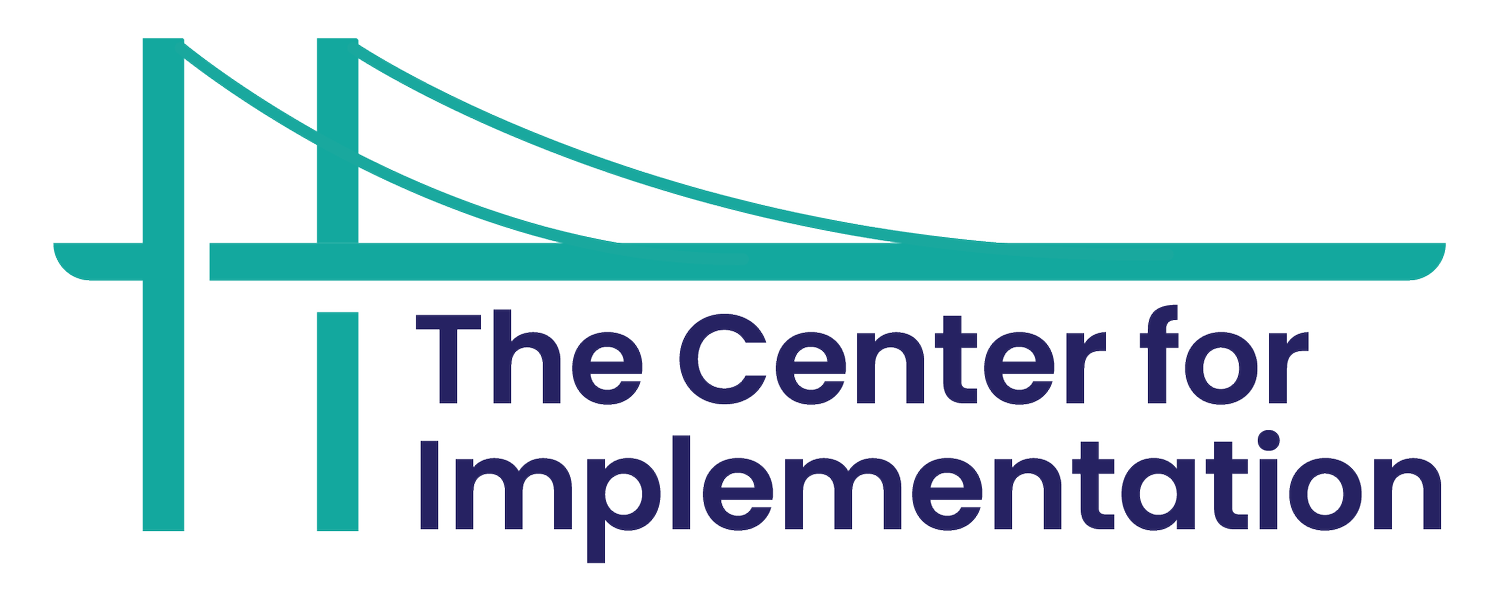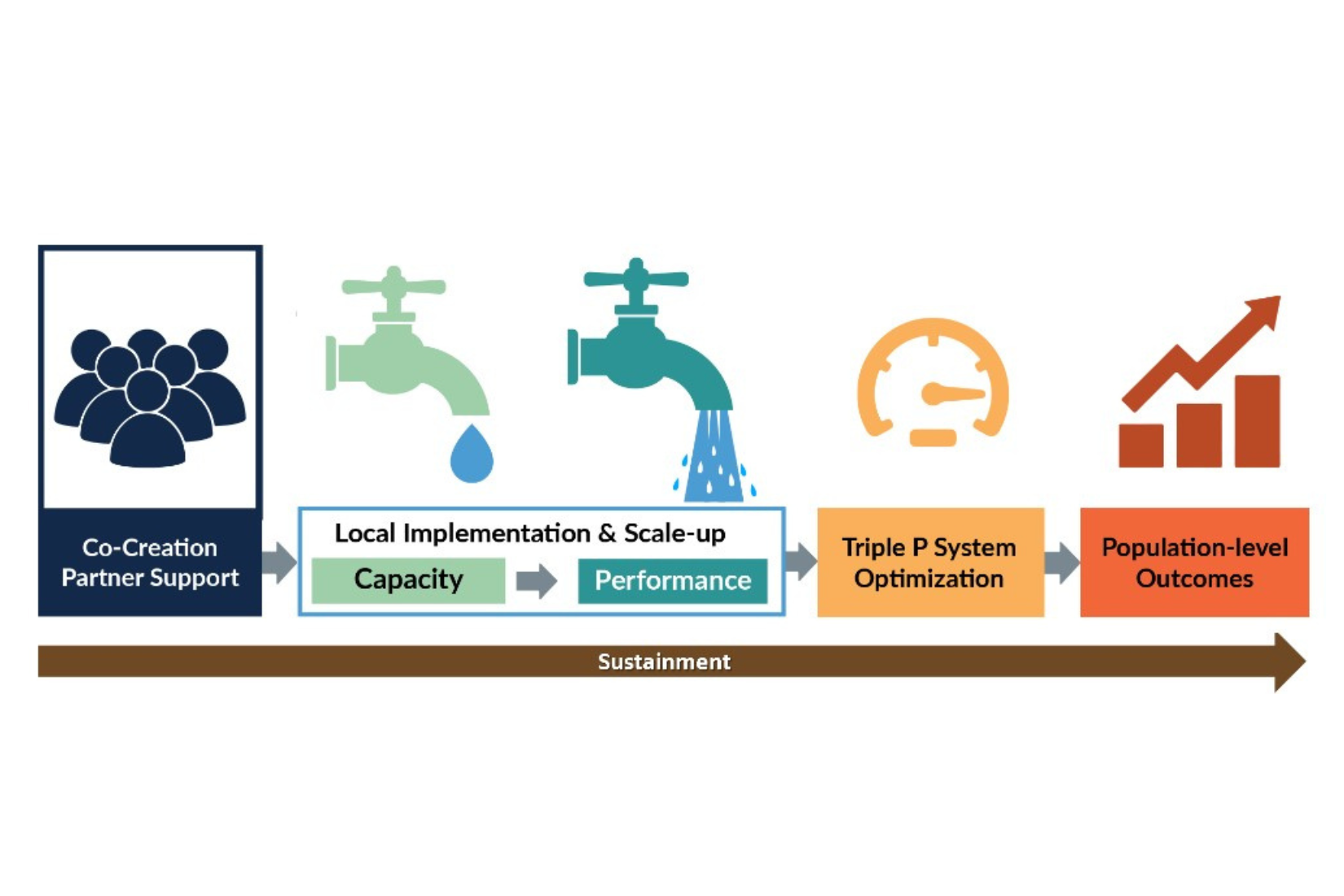Featured Resource: ICTP Simulation Lab
By Dr. Jonathan A. Caballero, Implementation Support Consultant
5-min read
The ICTP Simulation Lab is an interactive website offering resources that can enhance your implementation support initiative throughout the stages of implementation planning.
Developed by the Impact Center at FPG[1] to support the implementation and scaling of the Triple P positive parenting program, it offers a curated list of educational modules, tools, and measures that are relevant and useful at specific times of an implementation initiative.
Overview of the ICTP Simulation Lab
While it is organized according to a logic model tailored to support the implementation of Triple P initiatives, the resources it offers can be useful for a wide variety of implementation initiatives. The ICTP Simulation Lab provides related to:
Co-Creation and Partner Support
Local Implementation and Scale-Up
Optimization
Population-level outcomes
When clicking each of the components, a list displays a list of relevant resources. In line with this month’s bulletin theme at The Center for Implementation, we’ll focus on resources related to relationships, partnerships, and collaboration.
Modules for Co-Creation and Partner Support
Educational modules can be a great resource if you observe barriers related to a lack of relevant knowledge. Examples of modules available in the ICTP Simulation lab are:
“Co-Creation Video: Leading change through the power of diverse voices” – A short video on how engaging individuals in planning your initiative can build trust and increase the probability of successful implementation.
“Intermediary Organization Overview Video” – An introduction to the tasks that intermediary implementation support organizations perform, including the important role of strengthening relationships between these organizations and connecting them with potential partners in the larger system (e.g., policymakers, funding agencies, etc.).
Tools for Co-Creation and Partner Support
When you observe barriers related to a lack of skills, you may want to train people on how to execute certain activities. One way to support this is by sharing appropriate tools and offering training on how to use them. Examples of tools available in the ICTP Simulation Lab are:
“Readiness and Agency Leadership Tool” - A primer on what is readiness, how to assess it, and how to foster it through creating buy-in, teaming, supporting, and feedback loops.
“Community Capacity Assessment” – A step-by-step practical guide on how to evaluate the capacity of a community to develop, improve and sustain a program. It includes instructions on how to plan and communicate an assessment activity, facilitator instructions, and templates/instruments to use.
Measures for Co-Creation and Partner Support
A natural activity in evidence-based implementation is tracking data and using it to plan and adapt the initiative whenever needed, understand the initiative’s outcomes, and eventually, plan and continually adjust sustainability efforts. Examples of measures available in the ICTP Simulation Lab are:
“Wilder Collaboration Factors Inventory” – It measures research-based factors influencing collaboration using a 44-item inventory that can be completed in ~15 minutes.
“Organizational readiness for Lead Agencies” – A measure of team members’ psychological and behavioral preparedness to implement organizational change, adapted from an established psychometric assessment.
Most resources are framed in the context of Triple P programs but their approach is applicable beyond them as they are deeply rooted in implementation science and practice. We invite you to take a look and explore these resources and reflect on how they can support you in strengthening relationships, collaboration, and partnerships in the context of your own change initiative!
[1] Standing for "Frank Porter Graham Child Development Institute"
This article was featured in our monthly Implementation in Action bulletin! Want to receive our next issue? Subscribe here.

